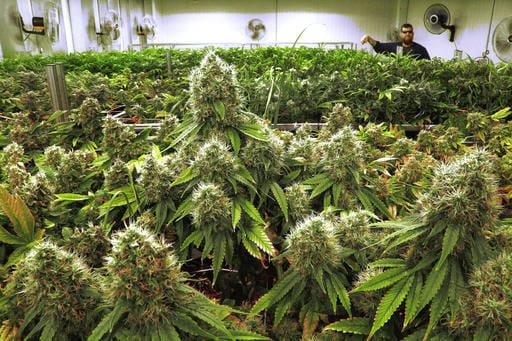PHOENIX — State lawmakers acted illegally in making it a crime for medical marijuana users to possess their drugs on college and university campuses, the Court of Appeals ruled Thursday.
The judges said the 2010 initiative that legalized the use of marijuana for medical purposes set out the specific places where even those entitled to otherwise use the drug may not have it. That list, they said, includes school buses, public schools and correctional facilities.
But Judge Peter Swann, writing for the unanimous three-judge panel, pointed out the Arizona Constitution forbids lawmakers from amending what voters have adopted unless the change “furthers the purpose” of the initiative. Making criminals out of medical marijuana users, he said, does not.
“To the contrary, it eliminates some of its protections,” Swann wrote, making a 2012 change in law criminalizing medical marijuana possession on campuses illegal.
The judge was careful to say, however, that nothing in Thursday’s ruling prohibits state lawmakers or the universities themselves, as owners of the buildings, from enacting regulations against marijuana possession on campuses.
“To the extent a person violates such rules or prohibitions, the state can have the offending party removed or charged with trespassing,” Swann said. “The Arizona Medical Marijuana Act does not stop it from creating such policies.”
What lawmakers may not do, he said, is make criminals out of medical marijuana users just because they bring their drugs on campus.
Thursday’s ruling deals with a 2012 amendment to the law which expanded the area off-limits to medical marijuana users to include “the campus of any public university, college, community college or post secondary educational institution.”
Rep. Amanda Reeve, R-Phoenix, who pushed the change, said federal regulations governing universities require they forbid students from having illegal controlled substances. Marijuana remains illegal for all under federal law.
Reeve argued that schools that do not comply can lose federal funding and financial assistance for students.
Andre Maestas was arrested in 2014 on a charge of obstructing traffic after Arizona State University police found him sitting in an intersection. A search of his wallet produced a medical marijuana card.
When police questioned him about the card, he admitted to having marijuana in his room. That gave police what they needed for a search warrant, coming up with about 0.4 grams of the drug, far below the amount medical marijuana users are legally allowed to possess.
Maestas was originally charged with a felony under the 2012 law, but prosecutors reduced that to a misdemeanor, which meant he was not entitled to a jury trial. Maricopa County Superior Court Judge Dean Fink found Maestas guilty, placed him on unsupervised probation, and imposed a $1,000 fine.
Maestas then appealed.
Swann rejected arguments by prosecutors that the threat of the loss of federal dollars gave lawmakers the right to outlaw medical marijuana use and denied courts the ability to review that decision. He said the issue is the way that is done.
“Schools and landlords may discriminate to protect federal money or licensing benefits,” he wrote. He said the 2012 law provides a defense to those accused of discriminating against medical marijuana users.
“Nothing in the plain language of the statute authorized criminalization of cardholders’ possess of marijuana on college or university campuses,” the judge said.
There was no immediate response from the attorney general’s office on whether there will be an appeal to the state Supreme Court.





